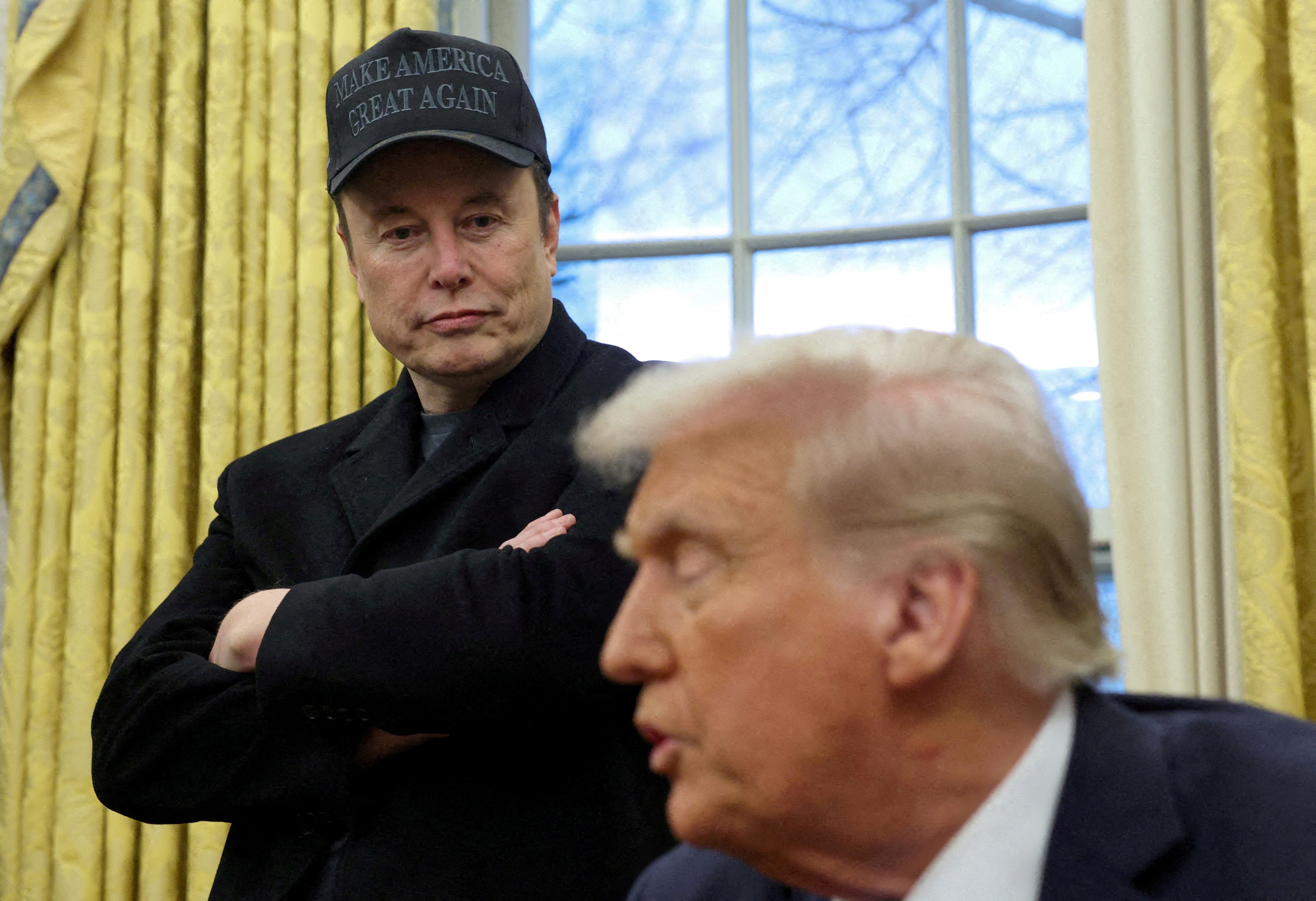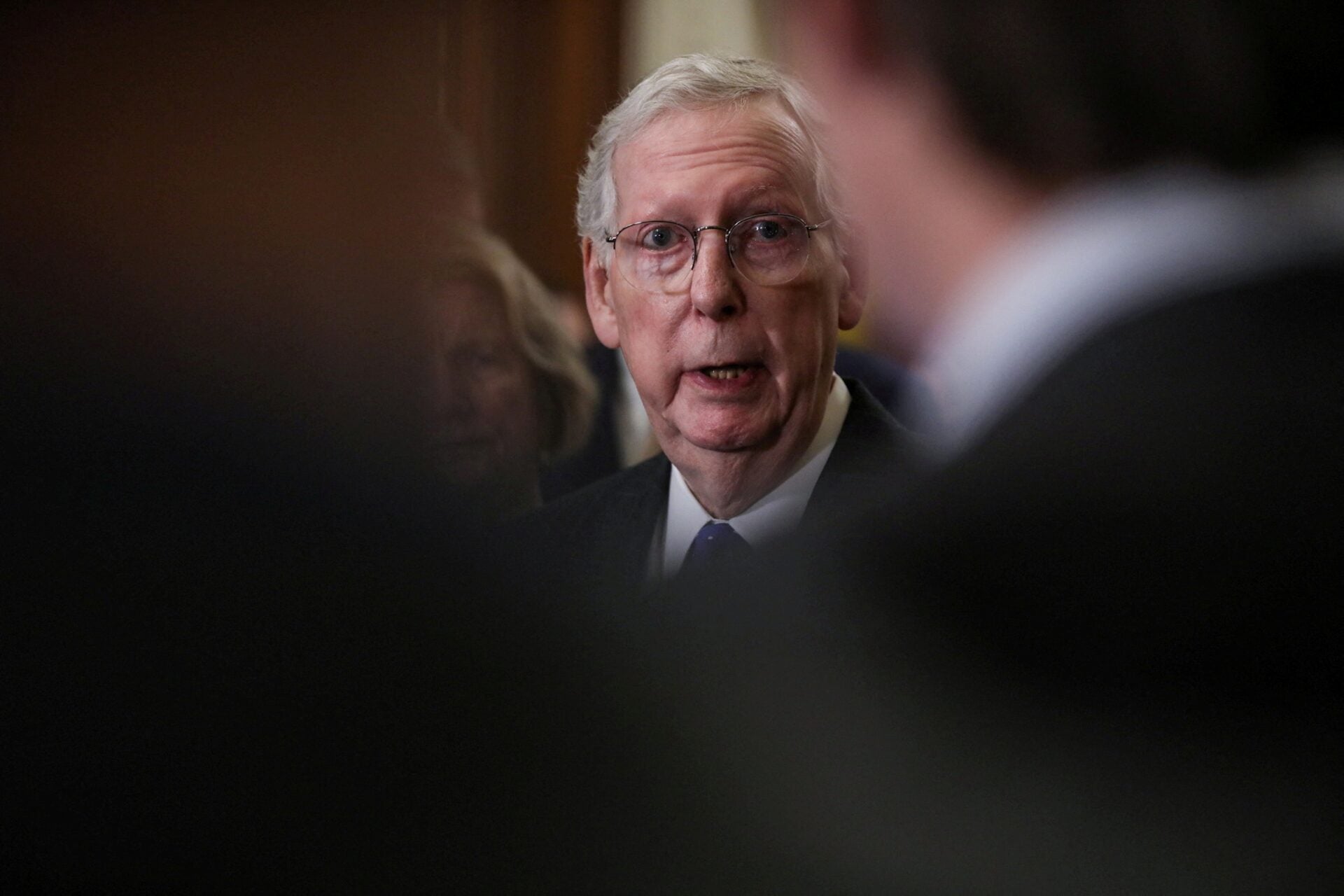
Musk can continue mass firings despite disruption, US judge rules
PHOTO CAPTION: Elon Musk listens to U.S. President Donald Trump speak in the Oval Office of the White House in Washington, D.C., U.S., February 11, 2025. REUTERS/Kevin Lamarque
By Jack Queen and Daniel Wiessner
(Reuters) -The Trump administration can continue its mass firings of federal employees for now, a federal judge ruled on Thursday, rejecting a bid by a group of labor unions to halt President Donald Trump’s dramatic downsizing of the roughly 2.3 million-strong federal workforce.
U.S. District Judge Christopher Cooper in Washington, D.C., said Trump's onslaught of executive actions in his first month in office have caused "disruption and even chaos in widespread quarters of American society." But he said he likely lacks the power to decide whether the firing of tens of thousands of government workers is lawful.
The unions are instead likely required to file complaints with the Federal Labor Relations Authority, which hears disputes between federal agencies and unions that represent their workers, Cooper said. Trump last week fired the Democratic chair of the three-member panel, who has filed a lawsuit seeking to be reinstated.
"Federal district judges are duty-bound to decide legal issues based on even-handed application of law and precedent — no matter the identity of the litigants or, regrettably at times, the consequences of their rulings for average people," the judge wrote.
Cooper declined to block the mass firings while the litigation plays out, a win for the Trump administration as it seeks to purge the federal workforce and slash what it deems wasteful and fraudulent government spending.
The White House and the U.S. Department of Justice did not immediately respond to requests for comment.
Doreen Greenwald, president of the National Treasury Employees Union, called the decision a temporary setback and said the union would continue pursuing its legal challenge.
"There is no doubt that the administration’s actions are an illegal end-run on Congress, which has the sole power to create and oversee federal agencies and their important missions," Greenwald said in a statement.
The treasury union and four others sued last week seeking to block eight agencies from firing thousands of federal workers and granting buyouts to employees who quit voluntarily. The agencies include the Department of Defense, Department of Health and Human Services, Consumer Financial Protection Bureau, and Department of Veterans Affairs.
Cooper's ruling is the latest setback for unions that have turned to courts to block Trump's sweeping and unprecedented efforts to shrink the federal bureaucracy. At least two judges have ruled that unions lacked legal standing to challenge mass firings and other Trump administration initiatives because they could not show they were directly harmed by them.
DOGE ACTIONS
Trump tapped Tesla CEO Elon Musk to lead a new Department of Government Efficiency, or DOGE, which has swept through federal agencies slashing thousands of jobs and dismantling federal programs since Trump became president last month. Trump also ordered federal agencies to work closely with DOGE to identify federal employees who could be laid off.
Terminations of workers across the federal government began last week, primarily targeting recently hired employees still on probation, at agencies such as the Internal Revenue Service, Department of Education, the Small Business Administration, the General Services Administration, and others.
The unions said in their lawsuit that White House efforts, including through DOGE, to shrink the federal workforce violate separation of powers principles by undermining Congress' authority to fund federal agencies.
The unions said that unless the court intervenes, they will be irreparably harmed by lost revenue from dues-paying members who were either fired or retired early to take buyouts.
Most civil service employees can be fired legally only for bad performance or misconduct, and they have a host of due process and appeal rights if they are let go arbitrarily. The probationary employees let go in last week's wave have fewer legal protections.
(Reporting by Jack Queen in New York and Daniel Wiessner in Albany, New York, Editing by Alexia Garamfalvi, Chizu Nomiyama and Bill Berkrot)











